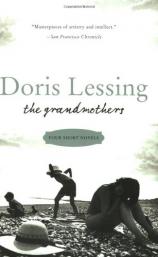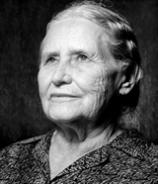Reading Group Guide
Discussion Questions
The Grandmothers

1. In the title novel -- The Grandmothers -- an adult Tom briefly refers to his life with his mother, her closest friend, and his closest friend in these terms: "Down there, I'm not free." Discuss the idea of personal freedom in the novel -- who is free to do what, and what choices are the characters "free” to make?
2. The tone in the title novel is noticeably cool and analytical. Why do you think Lessing chooses to tell the story in this way?
3. For a novel so focused on the personal, there is great care given to describing the physical worlds of these people. Discuss the importance of geographical elements in the story: the rough sea and the calm bay, the orderly, "perfect" land around it. The arid climate to which Harold and briefly Tom moves, and the brush thorns that litter the ground outside of the desert town.
4. In Victoria and the Staveneys, the author chooses to withhold the fact that Victoria is black until the fourth page (after much physical description). Why do you feel she delays this revelation?
5. One is tempted to level scorn on the Staveneys, and yet Lessing also shows them to be oddly touching, moral even. What are we meant to think about them? Do you find your response is of a personal, emotional nature of more removed? Furthermore, who is "good" in the family?
6. Does the action of Victoria and the Staveneys feel determined, or proscribed? If this is social commentary, then what are we taught; if this is simply the hand of the author, what does this reveal about her own social vision?
7. Victoria, Thomas and Edward are obviously products of their respective environments. How are they the results of their parentage? Does this parentage play into the above-mentioned notion of determination or fate?
8. What parallels do you see between the world of The Reason for It and our own?
9. The protagonist of A Love Child, James, goes through several transformations, the first, from England to South Africa; the second, from Africa to India. What precipitates these changes? Does James feel like the same person with Daphne as he was with Donald back in England? Is this change believable to you? What is Lessing trying to say about one's mutability, particularly as a result of one's caring and compassion for others?
10. What themes connect these novels?
The Grandmothers
- Publication Date: January 4, 2005
- Genres: Fiction
- Paperback: 336 pages
- Publisher: Harper Perennial
- ISBN-10: 0060530111
- ISBN-13: 9780060530112








